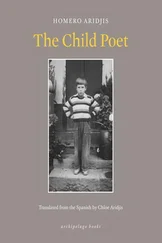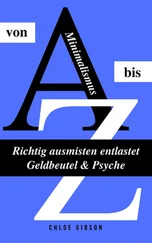If one hundred dogs bark at a phantom, the phantom becomes reality.
They call us guards, warders, invigilators, room keepers, gallery assistants. We are watchmen, sentinels, but we don’t polish guns, shoes or egos. We are custodians of a national treasure, a treasure beyond value stored behind eight Corinthian columns of a neoclassical façade, the dreams of the ancients stuccoed to our building. And our title should honour that.
I came to my profession half by chance, half following an ancestral call. After stumbling upon an ad for a Travelling Exhibition Assistant, I applied for the position but found the vacancy had been filled. Yet the kind man who answered my call mentioned another opening, this one at the British Museum. A guard had just resigned due to the diagnosis of an incurable ailment, and decided he wanted to spend his remaining months staring at something other than nymphs and satyrs locked in battle. They offered him the choice of other wings but he said he wanted to leave London and retire from culture.
My time there didn’t last but it led me to my calling. After the British Museum came the National Gallery, and nine years later I have come to know all the paintings and panels better than the palm of my hand.
How will you handle the boredom, they had first asked at the job interview. I laughed before realising they were serious, and told them I didn’t easily grow bored. But you will, they warned, and I replied that I would then simply draw up lists in my head or count the number of skirts or stripes in the room. You’re meant to protect the works of art, they said, to which I replied of course, yes, I would.
Acedia plagues the novice much more than the experienced solitary; unlike some of the new guards, I do not suffer from boredom or listlessness. Half of us have the right temperament, the other half don’t. Only time can distinguish us. Yet museum acedia isn’t triggered by a crisis of faith or the shifting angle of the sun and, what’s more, my profession is actually suited to those afflicted by it, perfect for individuals who are unconcerned with their position in the world and have fallen prey to a relatively permanent mental or physical sloth. The museum provides an activity for which we are paid to do little more than stand or sit for hours contemplating immobile images and mobile figures.
Occasionally I remind myself that I could have become a dozen things in life. I could have finished university, got a degree in English, perhaps added some letters after my name. I could have had a desk and a fountain pen, people knocking at the door bringing in papers to sign. Or, at the very least, my own filing cabinet and phone extension. But I have always been more interested in being than becoming, and as soon as I stumbled upon this job I knew nothing would budge me. Ambition has never been high on the list, nor marriage or adventure: the only thing that occasionally tempts me is the thought of another museum.
And I admit that at first I was more than a little jealous of the guards at Tate Modern, watching over their collection housed within an old power station, yet the energy being generated, while neither nuclear nor electric, came with its own set of perils. But it wasn’t until the Scandinavian artist set up an immense fake sun in the Turbine Hall that I thanked my guardian angels for my job at the National Gallery.
Until then, it is true, I envied my colleagues at the new Tate, and when this sun first rose I would, on days off, walk along the river to the museum and spend long whiles on my back staring upwards. A mirror had been fastened to the ceiling and there’d be dozens of us lying in random configurations on the concrete floor, waving at our reflections above, and I felt like I was at a site of pagan worship, all eyes converging on this great yellow sphere whose emanations remained a mystery — that is, until the guards began complaining of headaches and dizziness and cursing the fumes released from the artificial astral body, especially Martin Strake who, already prone to migraines and sensitivity to light, made a point from the start of looking the other way. After a few weeks the monofrequency lamps really took their toll; Martin succumbed to their haze, his legs grew weaker, his eyesight began to blur, his movements trance-like as if dictated by this overhead sun, attached to it by invisible strings.
And I succumbed, I too, and for several weeks went to worship the ephemeral god, until I found out this supposed orb wasn’t even a whole but a semicircle. We had been going to pay our respects to a semicircle, made whole by its reflection in a mirror. To this day I wish I hadn’t looked at the catalogue and had continued with my fantasy of the whole, but in the end, all that matters is that the Scandinavian’s piece was eventually replaced by something else of monstrous proportions yet not as precarious and that Martin Strake gradually regained his former self and could turn his eyes towards the Turbine Hall without dissolving. I used to envy those who were assigned temporary rather than permanent exhibits before realising that temporary is too risky; you never know what you are going to get.
Life at our Gallery is more predictable.
Early each week we are assigned different sections of a wing and, within these sections, four rooms a day. In the morning we shed our civvy clothes and slip on our uniform: a mouse-grey jacket with matching trousers or skirt, a pale lilac shirt and a shiny purple tie. We are given twenty-four minutes a day to change, an iron always available in the changing room, and in my nine years working here those twelve minutes in the morning and twelve in the evening, during which all kinds of little transformations take place, have gone by in a flash.
Once the museum opens at ten we must be in uniform and at our post. As of that moment we start patrolling our rooms, followed by a forty-five-minute lunch break, then back to our rooms. We have two twenty-minute tea breaks, morning and afternoon. It works well, this variation, after a while even beauty grows tiresome, and I have served every room in the Gallery except for the Portico Patrol, for which special training and a more assertive temperament, ideally, are required. Rotation is the salvation of the museum guard.
Our job has often been regarded as a knacker’s yard, the final outpost at the end of a long journey. Many of my colleagues are in their fifties and sixties, a few even older. People usually end up here after working in something else for years. George used to sort letters at the head post office at Mount Pleasant from midnight to four in the morning. Charlie worked as a car mechanic at his brother’s garage in Clapton. Pat began the job only after the last of her six children had left home. John was a nightwatchman at a bank for three decades. Dave spent twenty-eight years tweaking rides at the carny. Janet had gone bankrupt and was forced to sell her pub. Roland worked at a construction company called Sisyphus until suffering a nervous breakdown caused by a speed habit and industrial fatigue.
Some of us live in Zone 1 or 2, others in Zone 3 or 4 and spend an hour on public transport each morning. Some of us have a degree, most of us don’t. Some of us look at the art, some of us don’t. But we all protect the pictures and are able to direct visitors towards an entrance, an exit, towards whatever they want to aim for or depart from.
In the canteen, during one of the many hypothetical conversations we liked to engage in, conversations that led nowhere and for that very reason were all the more entertaining, we established that if most of us were given a painting we would sell it off immediately. Another hypothetical scenario is Which painting would you save if there were a fire . Some colleagues would choose a specific work they’d run to remove from the wall, others had none in mind, and yet others tried to think of the most valuable, usually a da Vinci or, for some reason, a Manet.
Читать дальше












